No Results Found
The page you requested could not be found. Try refining your search, or use the navigation above to locate the post.

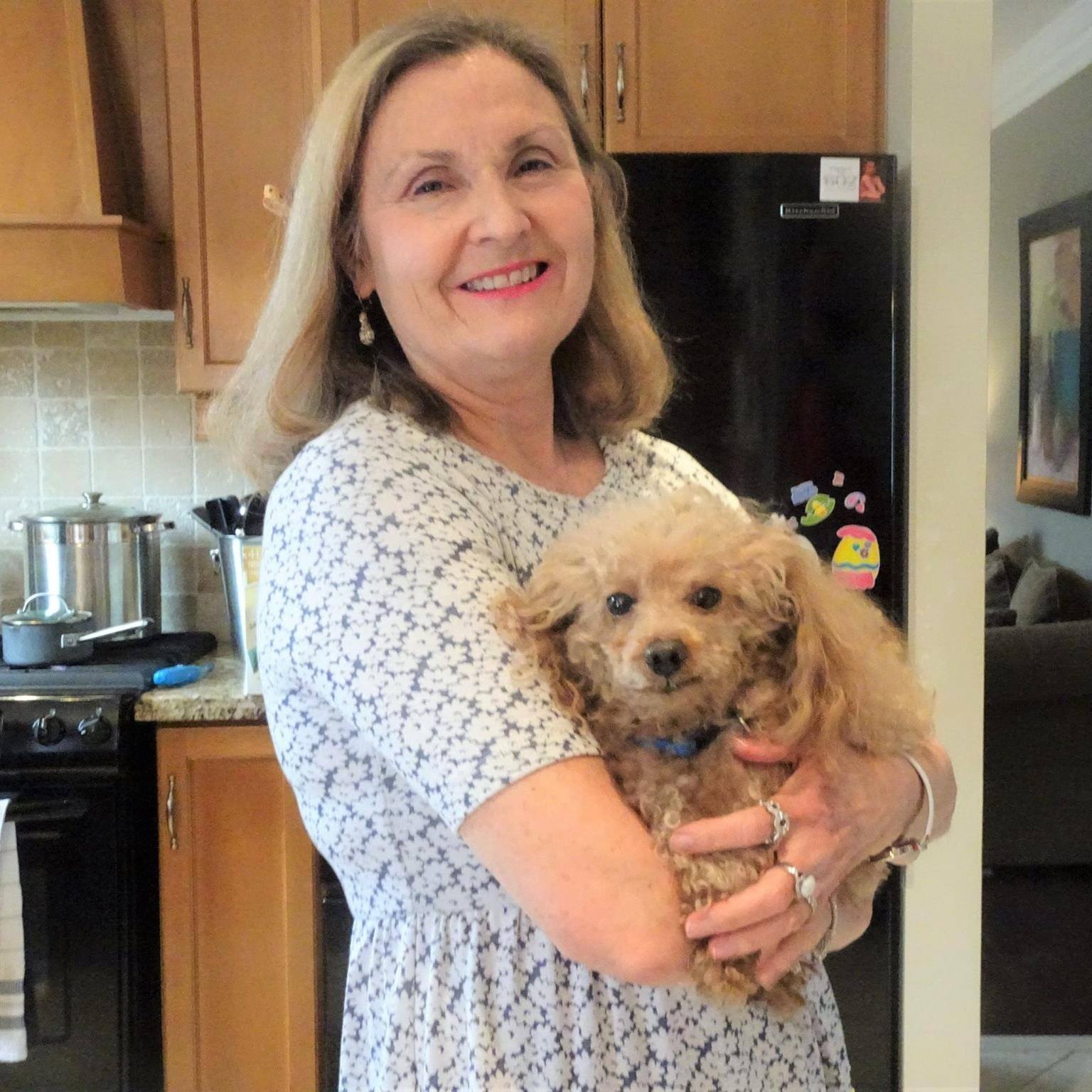
May 30, 2017
“In my opinion, Canada has the worst animal transport regulations amongst developed nations. This is based on current allowable maximum transport times for all animals.”

Very special thanks to Maureen Harper D.V.M., M.Sc. Epidemiology.
Dr. Harper worked for the Canadian Food Inspection Agency (CFIA) in offices in Ontario for 30 years. She’s intimately familiar with the rules and regulations when it comes to the live shipment of animals including horses by air, and after her retirement was appalled to learn how horses are shipped from Canada to Japan for slaughter for human consumption.
We so appreciate all that Dr. Harper does to raise awareness about the inhumane treatment of horses within Canada and during shipping by air. Recently she graciously gave hours of her time to provide information to the producers of the W5 horse slaughter expose.
Thank you too to Yenny Stronge of Blue Sky Radio for all she does to raise awareness about horse slaughter for human consumption in Canada and beyond.
The recording below is a straight forward, easy to listen to, informative overview of the history of live shipments from Canada to Japan and what is happening today.
The recording outlines why the treatment of horses before and during their transportation when destined for slaughter for human consumption is inhumane.
As Dr. Harper states: “It is NOT the proper way to transport horses by air”.
CTV W5 investigative report mentioned in the following recording is listed below.

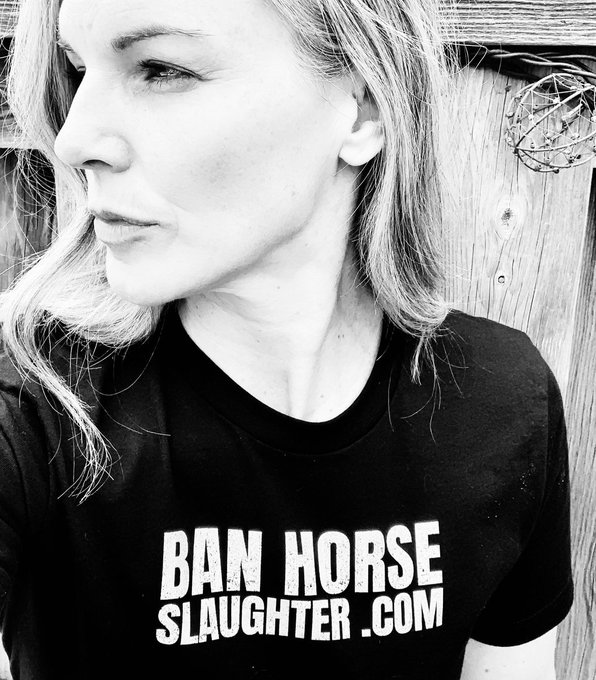
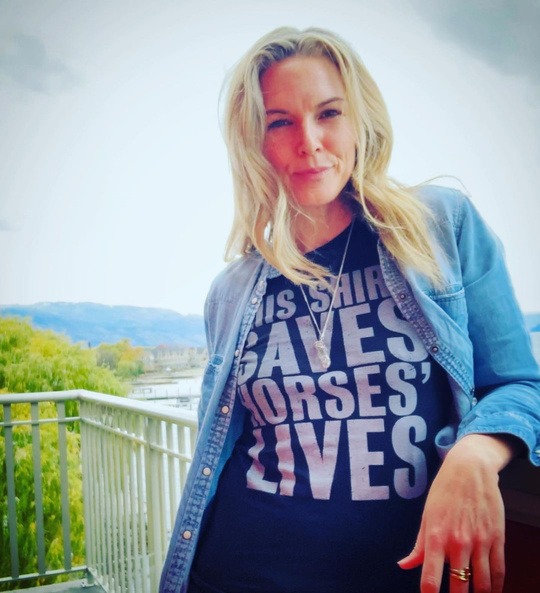
The page you requested could not be found. Try refining your search, or use the navigation above to locate the post.
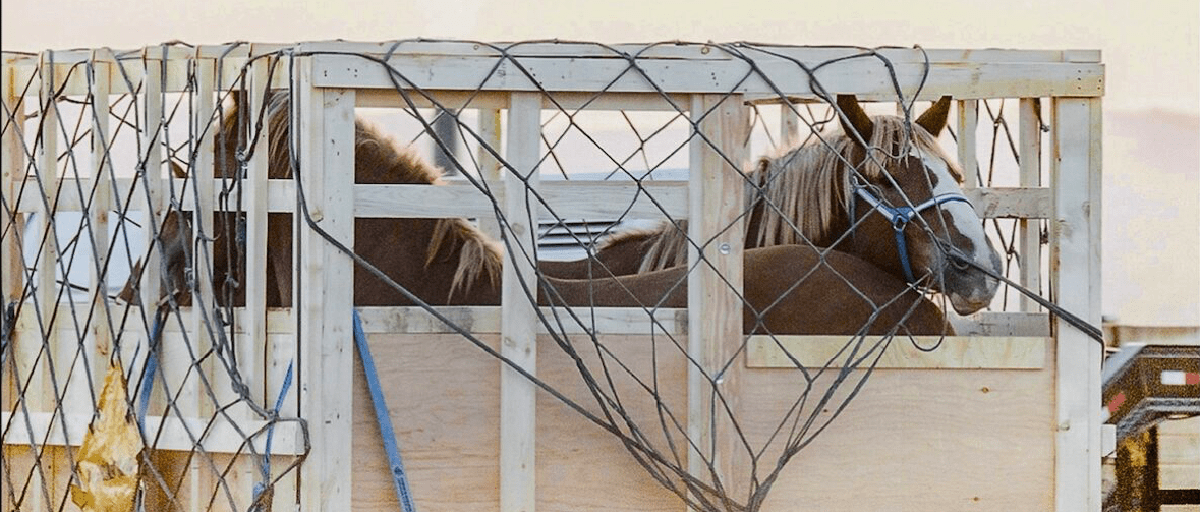
The Honourable Lawrence MacAulay, the current Minister of Agriculture and Agri-Food, has the power to end the inhumane export of horses by air for slaughter by enacting a regulatory amendment.
Help spread the word by sharing this email campaign with friends and family! You can also support the cause by donating—your contribution will help fund advertising efforts to raise awareness and push for change. Every action makes a difference!
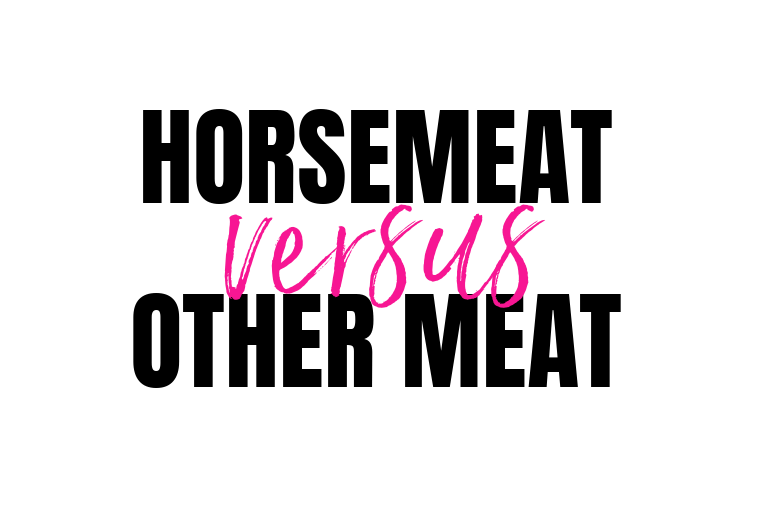
That is a fair question and one that those of us dedicated to ending the slaughter of horses in Canada and beyond, for human consumption, are frequently asked.
Let’s start by saying that many of our advocates have embraced the worldwide trend towards veganism.
Of course not everyone is vegatarian or vegan – or interesed in converting – we understand that.
But even so, there are many reasons why eating horses is different than eating meat from livestock that has been specifically raised to be slaughtered for meat.
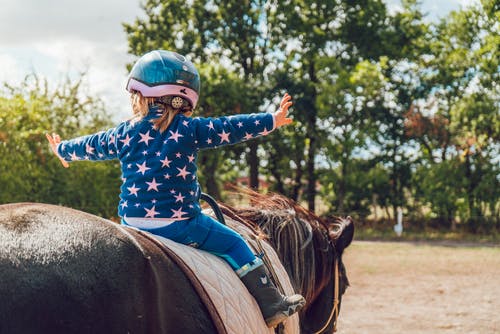
First, many, if not most, of the horses slaughtered in Canada are former pets and other horses, including racehorses, that have routinely been treated with drugs that are not intended for use on animals entering the human food chain.
For example, wormers. Ask your horse owning friends how often they worm their horses.
Most horse owners worm their horses at least twice per year, and wormers are generally marked with instructions that they are not to be used on any livestock to be consumed by humans.
Another drug that is also not meant to be used on livestock entering the human food chain is a drug horse owners refer to as “bute“. The proper name is phenylbutazone.
Bute is used to treat everything in horses from minor muscle aches to inflammation to abscesses of the hoof, lameness, arthritis, and so much more.
Again, ask your horse owning friends, and chances are good, that at one time or another, they have used bute on their horses.
Recently there have been multiple recalls from Canadian supermarket shelves of horse meat contaminated with Clenbuterol, which like bute is highly toxic to humans.
And these types of recalls of drug tainted, toxic to humans horse meat have been going on for years.
For most people that’s enough to make them decide that eating horse meat is probably not a great idea.
There MUST be rules in place to make sure that horses treated with drugs, not meant to enter the human food chain are not slaughtered for human consumption – right?
Well, there are regulations in place.
The problem is, and the reason why drug tainted toxic horse meat ends up on Canadian supermarket and other store shelves — is that the rules are based on the honour system.
Those presenting horses to be slaughtered are asked to fill out an Equine Identification Document (EID) stating that the horse is rightfully owned by them, and that the horse is free of toxic drugs.
So meat AKA kill buyers picking up cheap horses from ads in the newspaper ,or online from sources like Kijiji, or Craig’s List, or from auctions, don’t have full medical histories on the horses they are reselling for slaughter. Yet, they fill out EIDs stating that the horses they are presenting are clear of any banned drugs.
The word of those presenting the horses is good enough for the slaughter houses. Again, a form is filled out, on the honour system.
Hence the 2019 and 2020 recalls of drug tainted, toxic horse meat and…
Again, recalls have been going on for years..
This is far different than how other animals raised specifically for human consumption are regulated.
The industry is so poorly regulated that even stolen horses are slaughtered and butchered for meat, the same day they are sold to a slaughterhouse.
Check out “Sold for Hamburger” and “2 Pet Horses Stolen and Slaughtered for Human Consumption“.
A recent study by the University of Guelph showed Canadians eating meat, may be eating horse meat without realizing it.
The federal agency charged with keeping the food supply of Canadians safe, the Canadian Food Inspection Agency (CFIA) was NOT surprised horse meat was found on Canadian grocery store shelves marked as other than horse meat.
Yes really.
Did you get that?
The CFIA were not surprised. So is it any wonder as Canadians learn about pet horses and other horses not raised specifically for meat being slaughtered in Canada – and sold as food fit for humans, they are outraged.
On February 27th, 2021 CTV’s W5 aired an Investigative Report on the inhumane live shipment of horses to Japan to be slaughtered there for human consumption.
Unlike horses slaughtered within Canada for human consumption, most of the horses that are live shipped to Japan have been specifically raised for meat, The W5 program was titled “Flight Animals“.
Those of us who understand horses “got” that the title referred to horses being flown to Japan, and that there is another meaning.
Many animals when faced with danger will stand and fight, but horses are what are referred to as “flight” animals because when frightened they will do their best to flee.
The fact that horses are flight animals is a huge problem when horses are in the process of being slaughtered within Canada, because as flight animals they will often seriously injure themselves as they attempt to flee, as they are about to be slaughtered…
And to make matters even worse, the methods used in Canada to slaughter horses were not designed specifically for horses, so they are not adequate to guarantee an instant death.
This results in horses that are sometimes still alive when hung up by one leg, to have their throats slashed, to be bled out.
I”ll spare you the gory videos here, but you can Google and visit YouTube to learn more.

A recent Nanos poll shows that a majority of Canadians do not agree with the slaughter of horses for human consumption. — I think it is because many of us consider our horses to be family members, the same way we consider our cats and dogs family members, and the vast majority of Canadians, at least in my humble opinion, wouldn’t think for even a second, that it is appropriate to eat a cat or dog.
You can learn more about many of the points raised above, and about horse slaughter for human consumption — by clicking on the blog posts below…
And if you are as appalled by this barbaric practice, as the majority of Canadians are, please reach out to your Member of Parliament and let them know how you feel.




The page you requested could not be found. Try refining your search, or use the navigation above to locate the post.

The Honourable Lawrence MacAulay, the current Minister of Agriculture and Agri-Food, has the power to end the inhumane export of horses by air for slaughter by enacting a regulatory amendment.
Help spread the word by sharing this email campaign with friends and family! You can also support the cause by donating—your contribution will help fund advertising efforts to raise awareness and push for change. Every action makes a difference!
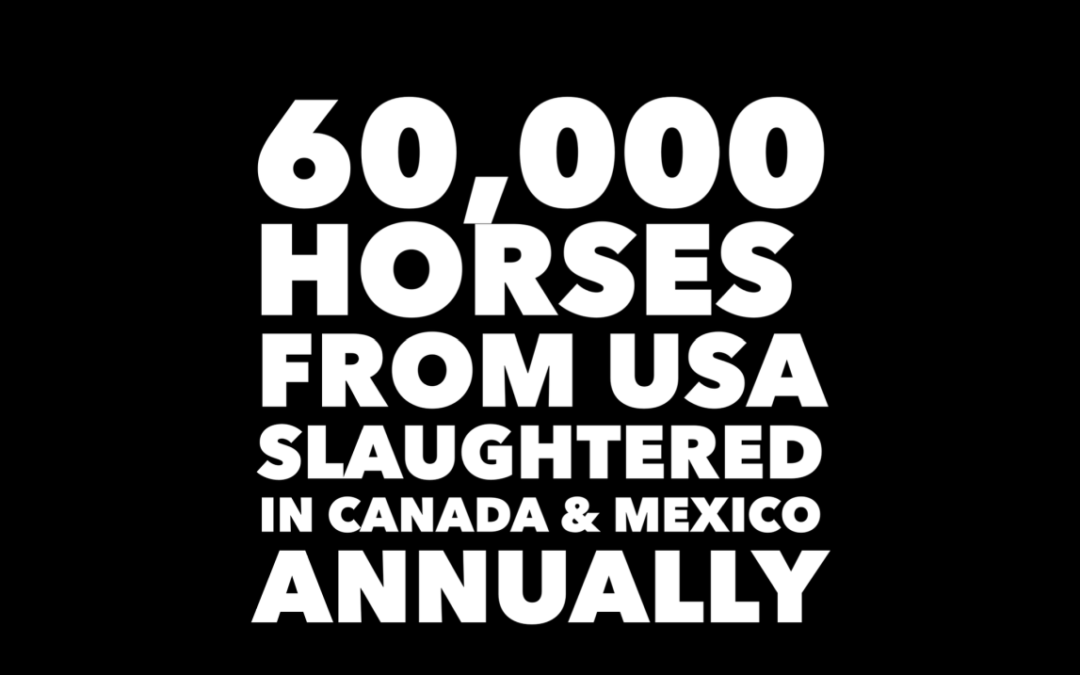
The government of the United States, has for now defunded inspections of horses at slaughter plants which means for the time being, it is no longer legal to slaughter horses within the United States.
BUT make no mistake about it, healthy wild and domestic American horses are still being slaughtered.
Last year approximately 35,000 American horses were shipped to Canada and Mexico in over crowded, leg breaking trucks without food or water for 2 to 3 days. Horses that include those who are pets.
You can help put an end to this inhumane treatment of horses.
Horses in our Hands and In Our hands Action Fund, a 501(c)4 believe:
... horses are intelligent, graceful, hard-working, faithful and loving animals that deserve more respect than ending up as someone's main course at dinner.



The page you requested could not be found. Try refining your search, or use the navigation above to locate the post.

The Honourable Lawrence MacAulay, the current Minister of Agriculture and Agri-Food, has the power to end the inhumane export of horses by air for slaughter by enacting a regulatory amendment.
Help spread the word by sharing this email campaign with friends and family! You can also support the cause by donating—your contribution will help fund advertising efforts to raise awareness and push for change. Every action makes a difference!
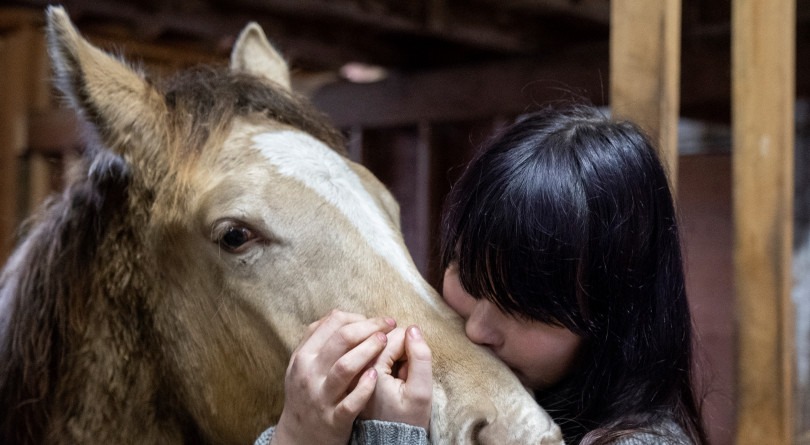
Photo by: Jen Osborne
“These activists are trying to change that.
The Canadian Horse Defence Coalition is waging a court battle to end Canada’s role as an exporter of live horses and frozen horsemeat for human consumption.”
Marie writes:
Thank you Canadian Horse Defence Coalition for all you do to help so many!
AND thank you to Maclean’s Canada for running this article to help raise awareness.
Canadians of courrse recognize Maclean’s magazine but for those reading from outside of Canada, this is a nationally recognized publication that was founded in 1905, and reports on Canadian issues such as politics, pop culture, and current events.
Mann had read the Canadian animal-health regulations which require horses over 14 hands high to be shipped solo in containers large enough to allow them to stand in a natural posture.
But she had routinely observed groups of three or four large horses being loaded into one crate with ceilings so low their ears poked through the top.
“There was no way they had enough room,” she says.
She condensed her footage into a three-minute YouTube video and in 2012 gave it to Sinikka Crosland at the Canadian Horse Defence Coalition, an animal rights group lobbying to stop the slaughter of horses.
Here, thought Crosland, was the perfect opportunity to raise awareness for their cause.
Photo at top of this post: A rescue farm in Duncan, Vancouver Island, holds horses that have avoided slaughter (Photograph by Jen Osborne)



The page you requested could not be found. Try refining your search, or use the navigation above to locate the post.

The Honourable Lawrence MacAulay, the current Minister of Agriculture and Agri-Food, has the power to end the inhumane export of horses by air for slaughter by enacting a regulatory amendment.
Help spread the word by sharing this email campaign with friends and family! You can also support the cause by donating—your contribution will help fund advertising efforts to raise awareness and push for change. Every action makes a difference!
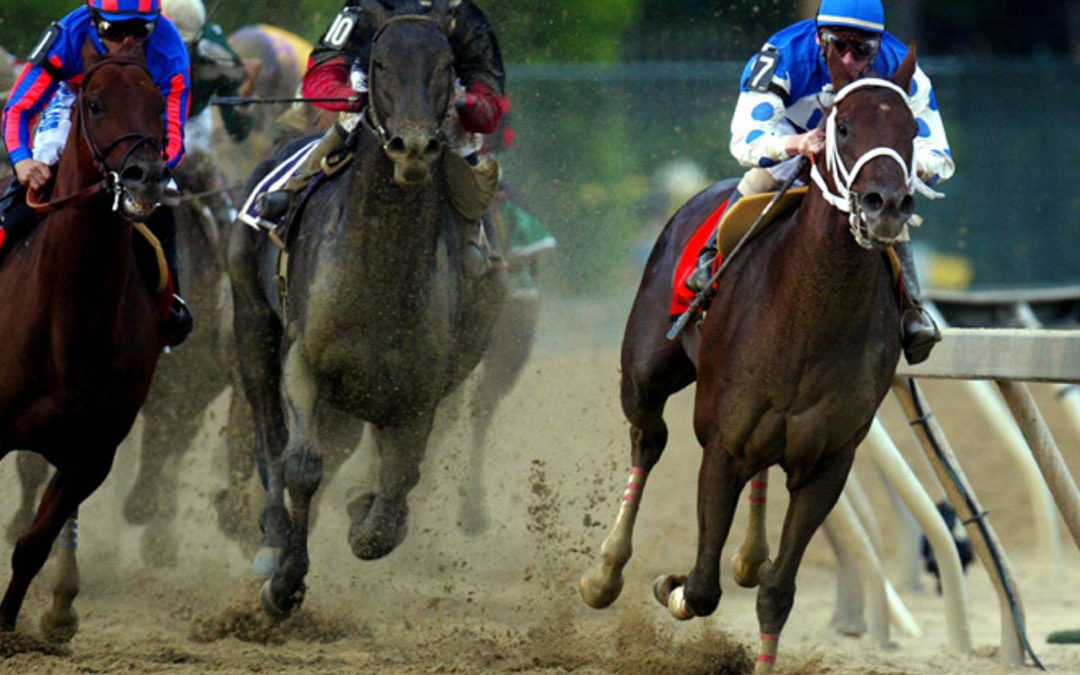
It is well-documented that many racehorses end up at slaughter auctions within a week of their last race, despite the fact that many tracks aross the country have policies opposing this practice,” said Nancy Perry, the senior vice president of ASPCA governmental relations.
For a horse like Orb, the sculpted colt that won the Kentucky Derby last week, the future holds plenty of promise. Besides earning the celebrity that comes with a high-profile victory, Orb is likely to attract the attention of breeders who would keep him healthy and occupied for the next 20 years.
But the vast majority of horses competing on North American racetracks—more than 61,000 horses last year—will spend their careers running in lower-level races, far from the public eye. Most will never see the sort of breeding bids that draw their more successful counterparts into early retirement, so they’ll race for as long as they can. When their bodies wear and winnings diminish, they’ll finally leave the track and head toward a future that’s often uncertain and sometimes abridged.
Here are some of the places, from the stud farm to the slaughterhouse, a retired racehorse may land:
Here are some of the places, from the stud farm to the slaughterhouse, a retired racehorse may land:
STUD FARM: As mentioned, top-tiered horses can usually count on a future breeding career.
“There is so much more money to be made in the stud if you’re successful than you could ever dream of making compared to racing,” says David Switzer, the executive director of the Kentucky Thoroughbred Association. The same is true for fillies, he said. “If you have a nice female that has won major stakes races and earned some money, it could be beneficial to retire the mare and breed her toward the stallions.”
In some cases, the payout an owner receives from a breeder can top the horse’s career earnings.
Last year, for example, Derby and Preakness winner I’ll Have Another, who earned about $2.7 million in his career, sold for $10 million to a Japanese breeder. It was an exceptional price, but quite a typical finish to a talented racehorse’s career.
Once a horse begins its breeding career, it continues to generate earnings.
Smarty Jones, the winner of the Derby and Preakness in 2004, has sired 418 foals in seven years, the last of which was born last month in Buckingham, Penn. Of those, 381 are racing age, and 192 have won races—for a total of just over $20 million in winnings. His stud fee is $7,500 per session.
Elite geldings, neutered horses, are not as lucrative once they retire. In many cases, therefore, they race longer and retire older than their fertile counterparts.
Consider the fate of the horses that ran in the 2010 Preakness Stakes: Those horses are now 6 years old, which means that by this point, most of them would have retired. Of the dozen that started in that race, seven are currently in breeding careers. One was euthanized after an injury; two geldings raced as recently as last year; one horse could not be accounted for, and one outlier, a colt named Schoolyard Dreams, continues to compete.
NEW JOB Many industry groups encourage owners to have their horses transition to a new career when their sprinting days are over. While racehorses tend to retire by the time they’re 6 or 7, horses trained in dressage, therapy or jumping can continue to work—and have value—well into their teens.
Dot Morgan, the executive director of New Vocations, which runs the largest racehorse adoption program in the country, says that thoroughbreds are particularly versitile animals.
“They can be taught to cut cows, barrel race, but what they’re usually used for if they’re sound and pain free, is to jump,” Morgan said. “They love to jump…Horses that are coming to us that have never seen a jump before, instead of being spooked, they head right for them.”
The agency, one of dozens throughout the country that accepts, retrains and finds new homes for unwanted horses, has found new purposes and owners for nearly 5,000 ex-racehorses. Most, she points out, did not arrive at one of the agency’s facilities at the end of a glamorous racing career.
“These are your mares and geldings racing on the B-tracks … and the ones that aren’t owned by the well-heeled owners that can afford to retire them to their farms,” she said. But every now and then a thoroughbred with impressive credentials will turn up in need of some help.
In 2012, WinStar Farms, the former owner of a Kentucky Derby alumn, got word that the horse was competing in low-end claiming races in Arizona and California. Advice, who placed 13th in the 2009 Kentucky Derby, was a gelding and therefore unable to be sold to a breeder after the Derby. Instead, Advice was sold to a new owner who raced him for three more years. After learning the horse’s fate, the former owner claimed the horse back and sent it over to New Vocations. There, Advice wound up training as a hunter/jumper, and was eventually adopted by somebody in Michigan, where the horse now lives.
SLAUGHTER While domestic “kill markets” dried up when the last U.S. slaughterhouses closed in 2007, the lure of overseas slaughter money—not to mention the financial burden of maintaining a horse that’s no longer profitable—still sends tens of thousands of horses to their death in foreign facilities each year. According to data compiled by the ASPCA, more than 166,000 American horses were sent to Canada and Mexico for slaughter last year.
“It is well-documented that many racehorses end up at slaughter auctions within a week of their last race, despite the fact that many tracks aross the country have policies opposing this practice,” said Nancy Perry, the senior vice president of ASPCA governmental relations.
Grim as that is, many more horses were shipped off to slaughter when U.S. facilities were still producing horsemeat for human consumption. In 1990, when numbers peaked, more than 410,000 American horses met their end in a slaughterhouse.
RESCUE/RETIREMENT FACILITIES Even second careers have their limits. Horses can live into their late 20s and even those that are able to smoothly transition into second careers will not be able to keep them forever. By the time they enter their late teens, it’s unlikely that they’ll continue to be used in equestrian events like hunting and jumping and may no longer be useful to breeders. Even younger horses can become sick or injured and need to permanantely retire.
The Unwanted Horse Coalition, an alliance of organizations dedicated to eliminating the problem of unwanted and abandoned horses, does not have an exact figure to measure the scope of the problem. But the group notes the annual slaughter numbers and says that there are not enough placement opportunities, volunteers or funding for all the unwanted horses in the country.
The Coalition lists a number or farms, facilities and organizations that accept and care for abandoned horses. And for the occasion when no better option is available, it lists an estimated price for euthanasia: $66, not including disposal (burial, rendering or incineration). Those fees, according to the American Association of Equine Practitioner’s National Fee and Market Study released in 2001, can range from $75 to $250 for rendering and up to $2,000 for incineration.
Last year, approximately 80,000 American horses were trucked over our borders (to Canada and Mexico) to be slaughtered for human consumption. Until this practice is banned and Congress passes a law against slaughter here in the U.S., no horse is safe. The term...
With special thanks to Emily Feldman (May 2013). It is well-documented that many racehorses end up at slaughter auctions within a week of their last race, despite the fact that many tracks aross the country have policies opposing this practice,” said Nancy Perry, the...
With special thanks to KTLA 5. A 23rd horse fatality has occurred at Santa Anita since Dec. 26 when Arms Runner fell on the dirt crossover portion of the hillside turf course Sunday and was later euthanized. La Sardane, who was behind Arms Runner, couldn’t avoid the...
THE WASHINGTON POST - OPINION THE GRIM FUTURE FACING MOST OF AMERICA'S RACEHORSES MAY 8, 2018 - By Kathleen Parker - ColumnistREAD THE FULL ARTICLE HERE.While racing fans are always interested in historical stats, many in the horse industry are more interested in how...
WHEN YOU SUPPORT HORSE RACING When you support racing you support the slaughter of a little-known “by-product” of the racing industry, “nurse mare foals“. Many nurse mare foals are slaughtered immediately after their birth, not necessarily using humane methods.You...
THE WASHINGTON - ANN TELNAESJUNE 6, 2015I think the illustration says it all but Ann Telnaes also writes: The Belmont Stakes is being held today and most of the attention is focused on whether or not American Pharoah, the winner of both the Kentucky Derby and...



The page you requested could not be found. Try refining your search, or use the navigation above to locate the post.

The Honourable Lawrence MacAulay, the current Minister of Agriculture and Agri-Food, has the power to end the inhumane export of horses by air for slaughter by enacting a regulatory amendment.
Help spread the word by sharing this email campaign with friends and family! You can also support the cause by donating—your contribution will help fund advertising efforts to raise awareness and push for change. Every action makes a difference!

I often have people tell me they wish they could do more, that they don’t own horses, that they “only” advocate via networking, and their key board.
So as I was reading the following post by Wendy Thomson, I was thinking about so many of you who are tireless with your networking efforts, who do make a HUGE difference in the world.
THANK YOU for being YOU!
Thank you for sharing via your social media accounts and for educating others as to what is going on with horse slaughter in Canada and beyond.
On average each Facebook user has 300 friends, so if you are among the camp who are sharing and spreading the word about causes you care about, keep in mind that each time you post, there is the possibility of, on average 300 people seeing your post, and being educated about “your” cause.
Then as even one or two of your friends share your post… each of their on average 300 friends have the potential to see the post, and when a couple of their friends share the post — and so forth and so on — you can do the math!
Now add in your Twitter account, your Instagram account, your Pinterest account and well hopefully you get the idea.
There is power in overlapping circles of influence and using your keyboard to advocate for the causes you care about.
I’ve pulled a few quotes from a powerful post by Wendy Thomson who I think hit the nail on the head.
Kudos too, to Meet Our Horse Meat in Australia who are firm believers that “language matters” — and that those who advocate for others in any way — are heroes.
Wendy Thomson writes:
Think twice before leveling accusations of ‘nothing but a keyboard warrior.’
You’d be amazed how much rescue advocates can accomplish on behalf of at-risk horses, without a barn full of their own horses to care for. All it takes is a love of animals and a passion to help rescue them. The more we expand our rescue army even beyond the horse world, the safer our horses will be.
….
Later in her post she writes:
Every educational conversation is worth its weight in gold that warns owners of the dangers when transitioning their horse – both at auction where too many are sold for their meat or even giving a horse away without a contract. The horses suffer the consequences of our misplaced trust every time.
….
A bit further down Wendy writes:
What we do not need is infighting. I’m often accused of having no value, because I own no horses. If it weren’t for a friend’s pull of six horses from a feedlot, I wouldn’t have joined rescue networking and horse advocacy. I had no awareness that American horses were still slaughtered. Once learned it had to be acted upon – we all have these stories, we all have value.
……..
Wendy ends her post with:
So many things can be done on behalf of our horses, especially by those of us not in a barn all day. Every front line team effort needs an entourage and helpers, so don’t dismiss keyboard warriors – horses need us all.
Wendy thank you for sharing this, I couldn’t have said it better myself.
AND to ANY ONE who feels they want to do more but who are worried that being a keyboard warrior is not enough, or to any one who is proud to be a keyboard warrior and wants to lock arms and work as a team to be even more effective, please…



The page you requested could not be found. Try refining your search, or use the navigation above to locate the post.

The Honourable Lawrence MacAulay, the current Minister of Agriculture and Agri-Food, has the power to end the inhumane export of horses by air for slaughter by enacting a regulatory amendment.
Help spread the word by sharing this email campaign with friends and family! You can also support the cause by donating—your contribution will help fund advertising efforts to raise awareness and push for change. Every action makes a difference!